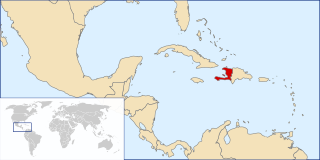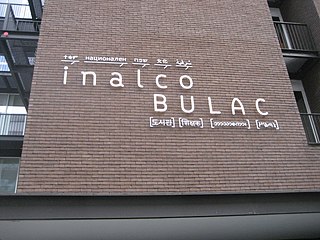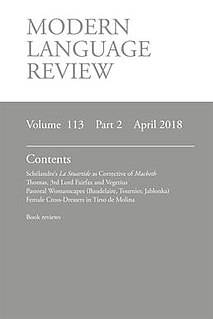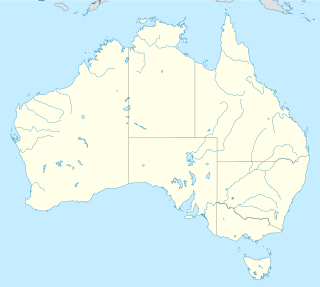
Basque (; euskara [eus̺ˈkaɾa]) is a language spoken in the Basque Country, a region that straddles the westernmost Pyrenees in adjacent parts of northern Spain and southwestern France. Linguistically, Basque is unrelated to the other languages of Europe and is a language isolate to any other known living language. The Basques are indigenous to, and primarily inhabit, the Basque Country. The Basque language is spoken by 28.4% (751,500) of Basques in all territories. Of these, 93.2% (700,300) are in the Spanish area of the Basque Country and the remaining 6.8% (51,200) are in the French portion.

The Levant is an approximate historical geographical term referring to a large area in the Eastern Mediterranean, primarily in Western Asia. In its narrowest sense, it is equivalent to the historical region of Syria. In its widest historical sense, the Levant included all of the eastern Mediterranean with its islands; that is, it included all of the countries along the Eastern Mediterranean shores, extending from Greece to Cyrenaica.
Philology is the study of language in oral and written historical sources; it is the intersection between textual criticism, literary criticism, history, and linguistics. Philology is more commonly defined as the study of literary texts as well as oral and written records, the establishment of their authenticity and their original form, and the determination of their meaning. A person who pursues this kind of study is known as a philologist.

Vietnamese is an Austroasiatic language that originated in Vietnam, where it is the national and official language. It is the native language of the Vietnamese (Kinh) people, as well as a first or second language for the many ethnic minorities of Vietnam. As a result of Vietnamese emigration and cultural influence, Vietnamese speakers are found throughout the world, notably in East and Southeast Asia, North America, Australia and Western Europe. Vietnamese has also been officially recognized as a minority language in the Czech Republic.
A person’s second language, or L2, is a language that is not the native language of the speaker, but is learned later. For example, there are two official languages of Canada and some people use both.
Slavic studies, Slavonic studies or Slavistics is the academic field of area studies concerned with Slavic areas, Slavic languages, literature, history, and culture. Originally, a Slavist or Slavicist was primarily a linguist or philologist researching Slavistics, a Slavic (AmE) or Slavonic (BrE) scholar. Increasingly historians and other humanists and social scientists who study Slavic area cultures and societies have been included in this rubric.
Sinology or Chinese studies is an academic discipline that focuses on the study of China primarily through Chinese thought, Chinese language, literature, Chinese culture and history, and often refers to Western scholarship. Its origin "may be traced to the examination which Chinese scholars made of their own civilization."
Applied linguistics is an interdisciplinary field which identifies, investigates, and offers solutions to language-related real-life problems. Some of the academic fields related to applied linguistics are education, psychology, communication research, anthropology, and sociology.

Haitian Creole is a French-based creole language spoken by 10–12 million people worldwide, and the only language of most Haitians. It is a creole language based largely on 18th-century French with influences from Portuguese, Spanish, English, Taíno, and West African languages. Haitian Creole emerged from contact between French settlers and African slaves during the Atlantic slave trade in the French colony of Saint-Domingue. Haitians are the largest creole-speaking community in the world.

The palatal nasal is a type of consonant used in some spoken languages. The symbol in the International Phonetic Alphabet that represents this sound is ⟨ɲ⟩, a lowercase letter n with a leftward-pointing tail protruding from the bottom of the left stem of the letter. The equivalent X-SAMPA symbol is J. The IPA symbol ⟨ɲ⟩ is similar to ⟨ɳ⟩, the symbol for the retroflex nasal, which has a rightward-pointing hook extending from the bottom of the right stem, and to ⟨ŋ⟩, the symbol for the velar nasal, which has a leftward-pointing hook extending from the bottom of the right stem; the symbol was derived from a ligature of the digraph gn, which represents the sound in French and Italian.

Multilingualism is the use of more than one language, either by an individual speaker or by a community of speakers. It is believed that multilingual speakers outnumber monolingual speakers in the world's population. More than half of all Europeans claim to speak at least one language other than their mother tongue; but many read and write in one language. Always useful to traders, multilingualism is advantageous for people wanting to participate in globalization and cultural openness. Owing to the ease of access to information facilitated by the Internet, individuals' exposure to multiple languages is becoming increasingly possible. People who speak several languages are also called polyglots.
French immersion is a form of bilingual education in which a child who does not speak French as his or her first language receives instruction in school in French. In most French-immersion schools, children will learn to speak French and learn most subjects such as history, music, geography, math, art, physical education and science in French.

Institut national des langues et civilisations orientales is a French research institution teaching languages that span Central Europe, Africa, Asia, America, and Oceania. It is often informally called Langues O’ or more recently by the acronym Inalco.
Bohtan Neo-Aramaic is a modern Eastern Neo-Aramaic language, one of a number spoken by the Assyrians. Originally, Bohtan Neo-Aramaic was spoken on the Plain of Bohtan in Şırnak Province of southeastern Turkey as well in the town of Gardabani, near Rustavi in Georgia, Göygöl and Ağstafa in Azerbaijan. However it is now spoken in Moscow, Krymsk and Novopavlosk, Russia. It is considered to be a dialect of Assyrian Neo-Aramaic since it is a northeastern Aramaic language and its speakers are ethnically Assyrians.

Modern Language Review is the journal of the Modern Humanities Research Association (MHRA). It is one of the oldest journals in the field of modern languages. Founded in 1905, it has published more than 3,000 articles and 20,000 book reviews.

Iranian studies, also referred to as Iranology and Iranistics, is an interdisciplinary field dealing with the study of the history, literature, art and culture of Iranian peoples. It is a part of the wider field of Oriental studies.

Dalabon is a Gunwinyguan language of Arnhem Land, Australia. It is a severely endangered language, with perhaps as few as three fluent speakers remaining as of 2018.
Dalabon is also known as Dangbon, Ngalkbun, and Buwan.
Italian Studies is an interdisciplinary field dealing with the study of the Italian language, literature, art, history, politics, culture and society.
Cairn.info is a French-language web portal, founded in 2005, containing scholarly materials in the humanities and social sciences. Much of the collection is in French, but it also includes an English-language international interface to facilitate use by non-francophones. Primary research areas include communications, economics, education, geography, history, literature, linguistics, philosophy, political science, law, psychology, sociology, and cultural studies. The site provides gratis open access to some publications.











